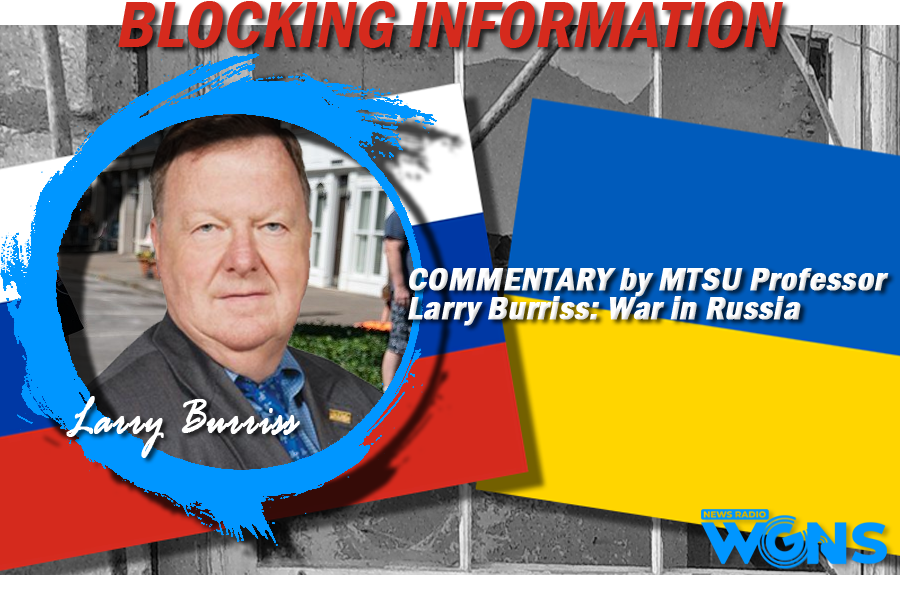Suppressing news in Russia and the Ukraine - - With today’s media commentary, here’s MTSU’s Dr. Larry Burriss…
Scroll down for more…
Continued…
Verbatim: "In the movie “Jurassic Park,” Ian Malcolm said, “Life will find a way.” And in “Star Wars,” Princess Leia said, “The more you tighten your grip, the more worlds will slip through your fingers.
Now I’m not at all sure how deep these philosophical statements are, but they certainly apply to news the average Russians are getting about events in Ukraine.
As you might expect, the Russian government has tried mightily to suppress news about what is going on in the war, which, by the way, the Russians seem to be losing.
And in response the Russian people have turned to a plethora of illegal satellite communication systems and a host of what are known as VPN, Virtual Private Networks.
Certainly satellite communications are fairly easy to block, but VPNs are almost impossible.
A VPN is a fairly simple piece of software that encrypts messages at the senders and generally prevents snoopers from figuring out who is accessing the Internet and from where.
It’s interesting that every time a despotic government tries to take over, the first things they want to control are the instruments of communication
And of course, every time the Russian government tries to block access to news of the world, someone finds a way to beat the system.
But human nature always finds a way.
Take, for example, the so-called tap code, which actually goes back to the days of ancient Greece, but was popularized during the Vietnam War when American prisoners were held in isolation, and were forbidden to communicate with each other.
Despite how often their North Vietnamese captors tried to prisoners from talking with each other, they were, in fact, able to communicate through solid walls and even with sitting next to each other by tapping a foot or thigh.
Maybe we should paraphrase a quote attributed to Abraham Lincoln: You can block all of the news some of the time, and you can block some news all of the time, but you can’t block all of the news all of the time. - I’m Larry Burriss."
About Dr. Burriss
Larry Burriss, professor of journalism, teaches introductory and media law courses. At the graduate level he teaches quantitative research methods and media law. He holds degrees from The Ohio State University (B.A. in broadcast journalism, M.A. in journalism), the University of Oklahoma (M.A. in human relations), Ohio University (Ph.D. in journalism) and Concord Law School (J.D.). He has worked in print and broadcast news and public relations, and has published extensively in both academic and popular publications. He has won first place in the Tennessee Associated Press Radio Contest nine times. Dr. Burriss' publications and presentations include studies of presidential press conferences, NASA photography, radio news, legal issues related to adolescent use of social networking sites, legal research, and Middle Earth.
Dr. Burriss has served as director of the School of Journalism, dean of the College of Mass Communication and president of the MTSU Faculty Senate. He was appointed by Gov. Phil Bredesen to serve on the Tennessee Board of Regents. He was a lieutenant colonel in the U.S. Air Force and served on active duty in Mali, Somalia, Bosnia, Central America, Europe and the Pentagon.






